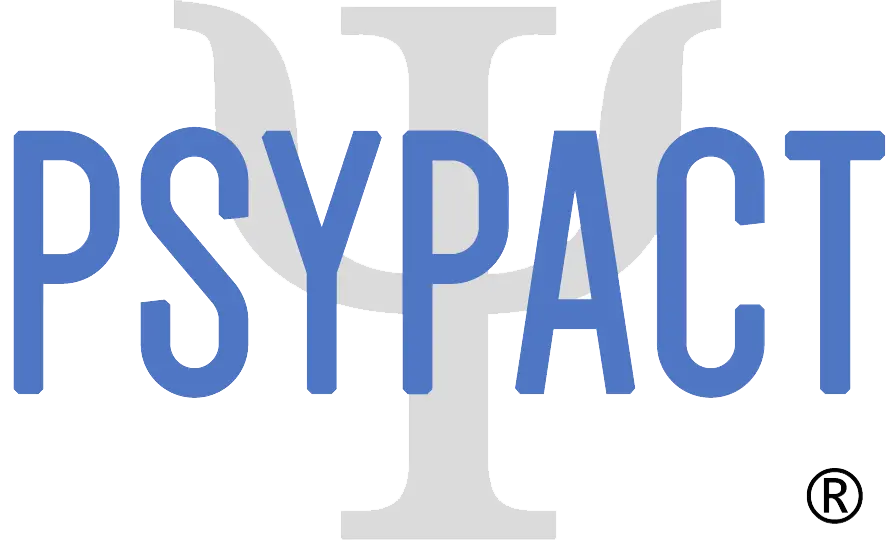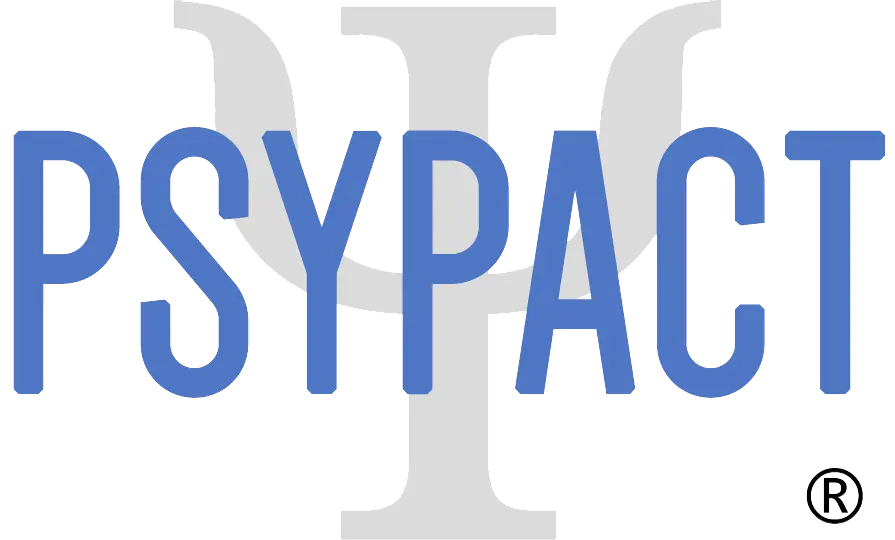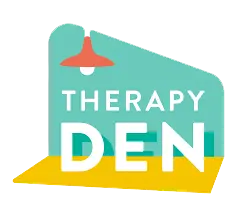Compassionate Support for Your Unique Mind
Living with Attention-Deficit/Hyperactivity Disorder (ADHD) means experiencing the world through a uniquely wired brain—one that brings remarkable creativity and insight alongside the challenge of navigating systems not designed for how you think. At Polaris Psychology, our ADHD therapy focuses on understanding and healing the deeper emotional impacts of living as a neurodivergent person in a neurotypical world, rather than simply managing symptoms.
What Makes Our Approach Different:
- We view ADHD as neurodivergence, not a pathology to “fix” – honoring your unique way of experiencing life
- Focus on emotional healing over symptom management – processing years of invalidation and misunderstanding
- Identity exploration beyond diagnosis – understanding who you are as a whole person
- Relational insight and attachment – exploring how ADHD has shaped your relationships and sense of belonging
- Depth-oriented therapy – moving beyond surface-level coping to meaningful understanding and growth
- Trauma-informed understanding – recognizing that chronic invalidation can create deep wounds deserving of therapeutic attention
Understanding the Deeper Impact
Many of our clients come to us feeling exhausted—not just from ADHD itself, but from years of trying to fit into systems that weren’t designed for their minds. Perhaps you’ve spent years hearing “just focus” or “try harder” when you were already giving everything you had.
Learn more about living with chronic invalidation
For many neurodivergent individuals, navigating a world built for different brains becomes a chronically invalidating experience. Years of being told to “just focus,” “be more organized,” or “stop being so sensitive” can create profound emotional wounds distinct from typical ADHD symptoms.
This ongoing invalidation can feel traumatic—leaving you questioning your worth, your capabilities, and your place in the world. The constant message that who you are isn’t quite right can lead to anxiety, depression, relationship difficulties, and a deep sense of not belonging anywhere.
At Polaris Psychology, we understand that addressing ADHD means addressing these deeper emotional wounds. Our ADHD therapy creates space to explore not just how ADHD affects your daily life, but how years of misunderstanding have shaped your sense of self.
Knowledge & Experience
Choosing a partner in your ADHD journey can make all the difference. We’re passionate about helping you thrive by blending compassion, real-world tools, and a commitment to helping you discover your unique strengths. Here’s what sets us apart:

Dr. Ashley Welch, PsyD
Licensed Clinical Psychologist
Dr. Welch approaches ADHD therapy with deep understanding of how neurodivergence intersects with emotional experiences and relationships.
She works relationally to help clients understand how ADHD has shaped their connections with others and their sense of belonging.
Dr. Welch helps clients develop regulation skills while processing any difficult experiences related to living as a neurodivergent person in neurotypical environments, with particular attention to how these experiences show up in relationships and attachment patterns.

Dr. Amanda Mead, PsyD
Licensed Clinical Psychologist
Dr. Mead brings extensive experience helping adults navigate the real-world challenges, relationship difficulties, and identity questions that come with ADHD.
She specializes in attachment-based and relationally focused approaches that explore how neurodivergence shapes your sense of self, your connections with others, and your place in the world.
Her work addresses the existential and emotional aspects of living with ADHD while also building practical approaches that honor neurodivergent thinking styles.
When Your Mind Works Differently
Your ADHD brain brings remarkable gifts: creativity, intuition, deep empathy, and unique problem-solving abilities. Yet living with these gifts in systems designed for different minds can create profound emotional challenges that go far beyond typical symptoms.
These aren’t consolation prizes or silver linings; they’re genuine neurological gifts that contribute immense value to the world.
What We Explore Together
Our first meetings focus on creating a therapeutic relationship where you feel truly seen and accepted. We’ll explore your unique ADHD experience, what brought you to therapy, and what healing might look like for you. There’s no agenda to fix or change you—only to understand your inner world more deeply.
The Unique Strengths of ADHD Minds
As trust develops, we’ll dive deeper into exploring how ADHD has shaped your sense of self, your relationships, and your place in the world. This might include processing difficult experiences of invalidation, understanding patterns that no longer serve you, and gradually reclaiming parts of yourself you may have hidden.
Schedule a Free 15 minute Consultation
What to Expect in ADHD Therapy
Beginning therapy is a courageous step toward deeper self-understanding. At Polaris Psychology, we create a warm, judgment-free space where you can explore your inner world and heal from years of invalidation at your own pace, without pressure to change or “fix” yourself.
Beginning therapy is a courageous step toward deeper self-understanding. At Polaris Psychology, we create a warm, judgment-free space where you can explore your inner world and heal from years of invalidation at your own pace, without pressure to change or “fix” yourself.
- Deep exploration of your ADHD experience - understanding how neurodivergence has shaped your identity and relationships
- Processing emotional wounds - healing from years of feeling misunderstood or "wrong"
- Identity integration work - discovering who you are when ADHD isn't framed as pathology
- Relational pattern exploration - understanding how invalidation shows up in current relationships
- Meaning-making and narrative work - rewriting your story from deficit to difference
- Authentic self-acceptance - learning to honor your true nature rather than masking it

Early Sessions: Building Safety and Understanding
Our first meetings focus on creating a therapeutic relationship where you feel truly seen and accepted. We’ll explore your unique ADHD experience, what brought you to therapy, and what healing might look like for you. There’s no agenda to fix or change you—only to understand your inner world more deeply.
Ongoing Work: Exploration and Integration
As trust develops, we’ll dive deeper into exploring how ADHD has shaped your sense of self, your relationships, and your place in the world. This might include processing difficult experiences of invalidation, understanding patterns that no longer serve you, and gradually reclaiming parts of yourself you may have hidden.
Growth and Integration: Living More Authentically
Over time, many clients find themselves living with greater self-acceptance, forming more authentic relationships, and navigating the world from a place of inner knowing rather than external validation. This isn’t about becoming “normal”—it’s about becoming more fully yourself.
Healing Without Judgment or Pressure
Many clients come to us after years of feeling criticized, misunderstood, or pathologized. Our therapeutic space is designed to be the opposite of those experiences.
- No predetermined outcomes – we follow your unique process rather than following a treatment protocol
- Your pace matters – insight and healing happen naturally and can’t be rushed
- All parts welcome – your intensity, sensitivity, and different thinking are honored, not managed
- Process-oriented – we’re more interested in understanding than fixing
- Relationship-based – healing happens through authentic connection, not techniques
You might find yourself feeling understood in ways you haven’t experienced before. This therapeutic relationship itself becomes a corrective experience that can shift how you see yourself and move through the world.
Telehealth Therapy Sessions
Our first meetings focus on creating a therapeutic relationship where you feel truly seen and accepted. We’ll explore your unique ADHD experience, what brought you to therapy, and what healing might look like for you. There’s no agenda to fix or change you—only to understand your inner world more deeply.
Flexible Scheduling
As trust develops, we’ll dive deeper into exploring how ADHD has shaped your sense of self, your relationships, and your place in the world. This might include processing difficult experiences of invalidation, understanding patterns that no longer serve you, and gradually reclaiming parts of yourself you may have hidden.
HIPAA-compliant Technology
Over time, many clients find themselves living with greater self-acceptance, forming more authentic relationships, and navigating the world from a place of inner knowing rather than external validation. This isn’t about becoming “normal”—it’s about becoming more fully yourself.
Specialized ADHD Expertise
Over time, many clients find themselves living with greater self-acceptance, forming more authentic relationships, and navigating the world from a place of inner knowing rather than external validation. This isn’t about becoming “normal”—it’s about becoming more fully yourself.
No Travel Barriers
Over time, many clients find themselves living with greater self-acceptance, forming more authentic relationships, and navigating the world from a place of inner knowing rather than external validation. This isn’t about becoming “normal”—it’s about becoming more fully yourself.
Authentic Self-acceptance
Over time, many clients find themselves living with greater self-acceptance, forming more authentic relationships, and navigating the world from a place of inner knowing rather than external validation. This isn’t about becoming “normal”—it’s about becoming more fully yourself.
Telehealth ADHD Therapy Sessions
Why telehealth works well for ADHD therapy: Our secure video sessions allow you to engage in therapeutic work from the comfort and familiarity of your own space. Many clients with ADHD find telehealth particularly beneficial because it eliminates common barriers like transportation challenges, executive functioning demands of getting to appointments, and the sensory overwhelm that can come with unfamiliar environments.
Comfort of Familiar Environment
Therapy from your own safe space.
Reduced Executive Functioning Demands
No travel planning or appointment logistics.
Consistent Scheduling
Easier to maintain therapeutic momentum.
Privacy & Discretion
No waiting rooms or chance encounters.
Accessability
Serving clients across multiple states and territories.
Sensory Considerations
Controlling your environment for optimal comfort and focus.
States Where We Provide Telehealth ADHD Therapy
Our telehealth platform is HIPAA-compliant and designed to provide the same quality of therapeutic relationship as in-person sessions while offering the convenience and accessibility that works best for neurodivergent individuals.
We offer Online ADHD Therapy in These States
Alabama, Arizona, Arkansas, Colorado, Connecticut, Delaware, District of Columbia, Florida, Georgia, Idaho, Illinois, Indiana, Kansas, Kentucky, Maine, Maryland, Minnesota, Michigan, Missouri, Mississippi, Montana, Nebraska, Nevada, New Hampshire, New Jersey, New York, North Carolina, North Dakota, Northern Mariana Islands, Ohio, Oklahoma, Pennsylvania, Rhode Island, South Carolina, South Dakota, Tennessee, Texas, Utah, Vermont, Virginia, Washington, West Virginia, Wisconsin, and Wyoming.
Ready to Begin? Schedule Your Free ADHD Therapy Consultation Call Today.
If you’re looking to turn daily chaos into a supportive structure—one that honors your energy, creativity, and personal vision—we’re here to help. By pairing evidence-based strategies with genuine empathy, we’ll work together toward calmer, more purposeful days. Schedule a free 15-minute consultation below, and let’s explore how Therapy for ADHD














